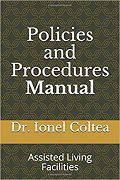The Greek word translated “gospel,” euangelion, did not refer to a type of literature or to a book in the first century. It had a more dynamic meaning, a proclamation of an event of major importance. For us that might resemble the breaking news headline that promises a story to follow. For the inhabitants of an ancient city, the word evoked the excitement of a messenger racing into town with news of the latest battle, or news that a new ruler had assumed the throne in a distant capital. The Jewish historian Josephus reports that when Vespasian became emperor of Rome “proclamations” (Greek euangelia) led to feasting and civic rejoicing (War 4.618). The Greek translators of the Hebrew Bible used the cognate verb, euangelizesthai, for the announcement of God’s impending deliverance. A participle from this verb refers to the bearer of that message in Isaiah (40:9; 41:27; 52:7). Therefore “gospel” was a key term for Paul to speak of God’s new, definitive deeds of salvation in Jesus Christ (Rom 1:1, 16).
As a designation for written works, the term “gospel” must be secondary to the accounts in which first-century Christian authors presented Jesus as the one who fulfilled such prophetic promises or as the “great king” in whom God’s rule is embodied. Recognition that Gospels have been shaped by Christian faith in Jesus as God’s Messiah continues to fuel debate over whether their authors had any interest in historical information about Jesus’ life and teaching. Are we reading what is essentially a series of fictions about the founder of a new religious cult? Or do the Evangelists employ first-century ways of recounting the life and teaching of an important figure even as they make a case for believing Jesus to be the source of God’s salvation? Comparing the Synoptic Gospels with other ancient “lives” makes a plausible case for regarding them as biographical rather than fictional in intent. That conclusion does not mean that they are investigative documentaries. Each author exercises considerable freedom in presenting the events of Jesus’ life, his character, and his teaching. After presenting the case for the Gospels as ancient “lives,” we will note two alternative views that consider Mark and Luke to have been shaped according to the model of ancient epics. A final note suggests that by the end of the second century most Christians accepted the four-Gospel canon as authoritative accounts of Jesus.
Source: Genesis University
Great Books To Consider:
Disclaimer: The views and opinions expressed in this article are those of the author and do not necessarily reflect the official policy or position of Genesis University.








